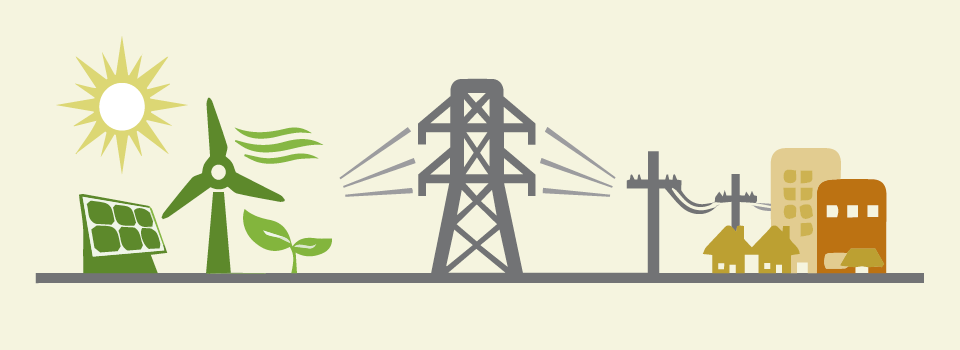Takoma Park Mobilization Environment Committee member Laurie McGilvray testified on December 1, 2020 in support of Maryland local bill MC 17-21, which would enable Montgomery County to establish a Community Choice Energy program. Learn more about CCE by watching a November 16, 2020 TPM co-hosted town hall.
Bill MC 17-21, introduced by Delegate Lorig Charkoudian, is state legislation that would apply only in Montgomery County. The hearing was convened by the Montgomery County legislative delegation. If this enabling legislation is advanced by the delegation — it has the support of County Executive Marc Elrich and the Montgomery County County — and passed by the Maryland General Assembly, the county would be empowered to negotiate a bulk electricity-purchase agreement on behalf of county consumers.
The following is TPM’s testimony —
Thank you, Montgomery County state Senators and Delegates for the opportunity to testify on MC 17-21, Montgomery County – Community Choice Energy – Pilot Program. My name is Laurie McGilvray and I am representing the Takoma Park Mobilization Environment Committee, and many individuals and groups in Montgomery County and across the state. While representatives of these groups would be happy to testify and some are, I have attached a sign-on letter and will list the supportive groups: Food & Water Action, Chesapeake Climate Action Network, The Climate Mobilization Montgomery County Chapter (TCM MoCo), Environmental Justice Ministry Cedar Lane Unitarian Universalist Church, Glen Echo Heights Mobilization, Montgomery County Faith Alliance for Climate Solutions, Montgomery Countryside Alliance, Sugarloaf Citizens’ Association, Maryland Legislative Coalition, 350 Montgomery County, Maryland Sierra Club, Biodiversity for a Livable Climate, DC Chapter, Climate Law & Policy Project, Do the Most Good, MoCoWoMen, Nuclear Information and Resource Service, Solar United Neighbors, and the City of Takoma Park.
We strongly urge you to support Delegate Charkoudian’s proposed Montgomery County – Community Choice Energy – Pilot Program. We want to highlight four reasons why this bill is so important to Montgomery County.
First, we are in dual crises of economic inequality and climate change. We have less than a decade to avert the worst effects of climate change, which are already evident in Montgomery County with unprecedented flooding and record-setting numbers of summers days over 90 degrees. Low-income communities are disproportionately impacted by the effects of climate change. At the same time, low-income residents pay 550% more as a percent of income for electricity than other Marylanders. According to the U.S. Census Bureau, the poverty rate in Montgomery County rose from 6.9% in 2018 to 7.4% in 2019, and we don’t yet know the long- term impacts of the current economic downturn. The County can use Community Choice Energy aggregation or CCE to negotiate lower electricity rates for all residential and business consumers, especially benefitting low-income residents.
Second, Montgomery County can use CCE to rapidly transition to renewable energy at affordable rates and make great strides toward meeting the County’s greenhouse gas reduction goals of 80% by 2027 and 100% by 2030. In fact, Montgomery County will have difficulty meeting its ambitious climate goals without CCE. This is why this powerful tool was one of the key recommendations of the County’s Energy Workgroup. CCE is a “game changer” because it can change the default electricity option to affordable, clean, renewable energy and overcome the biggest barrier consumers face in switching to clean energy, which is making a change that is difficult, confusing, and time-consuming.
Third, Community Choice Energy is “energy democracy;” it provides local control and choice over the source and type of electricity for consumers. CCE is essentially like a large buying club, the details of which are determined by the local democratically-elected government that establishes it. CCE will give Montgomery County consumers control over their electricity source, similar to what some groups already have now (e.g., groups of churches and large apartment buildings). By aggregating a large number of consumers, local governments can purchase electricity at significantly below the Standard Offer Service rate, which is the default rate charged by Maryland’s utilities. CCE still allows for consumer choice, because individual households and businesses can opt out of a CCE electricity rate and continue with the utility or third-party supplier of their choice. The CCE approach is similar in many ways to what actually happens now – i.e., most consumers get the default Standard Offer Service rate because they don’t make the effort to choose another supplier.
Lastly, it is one of the most cost-effective tools for benefitting consumers and addressing the climate crisis. The fiscal note on last year’s bill was low. The Public Service Commission can write the necessary regulations within their existing budget and the cost to Montgomery County to implement a CCE would be affordable.
Please support the proposed Montgomery County – Community Choice Energy – Pilot Program. It’s an outstanding opportunity for the County to meet important equity and environmental goals.
